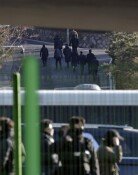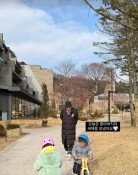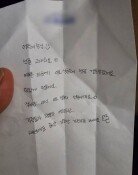Typhoon in Seoul
Residents of Seoul and Gyeonggi Province could not sleep well early Thursday morning because of noise from strong winds rattling their windows. The winds were so strong, many worried that the chassis of their windows might be torn apart. As dawn broke, signboards, umbrellas and plastic bags were seen flying. A man who works out daily at a neighborhood park went out to exercise though his wife insisted he skip it for the day. Few people were seen at the park, which was littered with young trees that had been uprooted. Even trees with strong roots were toppled.
Typhoon Kompasu, which made landfall on Ganghwa Island at 6:35 a.m. Thursday before sweeping through the area north of Seoul, is probably the first typhoon in several decades to brush past Seoul. Residents in Koreas storm-prone southern region, including the provinces of South Gyeongsang, South Jeolla and Jeju, are accustomed to strong winds and heavy rain. Apartment windows broken by a storm is hardly new in Haeundae, a popular beach in the countrys largest port city of Busan. Yet a typhoon that sweeps through Seoul and vicinity is rare. Residents in the capital region were spooked by the power of the typhoon. Tall Metasequoia trees were uprooted. Subway operations were suspended, creating a traffic nightmare in the morning rush hour.
Kompasu is a mid-level typhoon with a maximum instantaneous wind speed of 25-32 meters per second. Winds blowing at 15 meters per second can make signboards fly, while those of 25 meters per second can tear apart roofs or roof tiles. Kompasu reached a maximum speed of nearly 30 meters per second when it hit Seoul. Given that winds blowing at 35 meters per second can overturn a train, one can imagine how strong Thursdays winds were. Certain tornados in the U.S. blow at a mind-boggling 150 meters per second, toppling concrete buildings and flipping huge tractor trailers upside down.
The rapid wind speed shortened Kompasus life expectancy, however, as the typhoon left the Korean Peninsula quickly and died down. But the storm left huge scars on the country. Strong winds damaged rice paddies and fruit orchards that will soon be harvested, dealing a severe blow to farmers. Since farmers could not work, fish prices have soared ahead of the Chuseok (Full Moon Harvest) holidays, a peak season for agricultural products. Korea must prepare itself for more typhoons that are expected to hit the country because of higher sea water temperatures.
Editorial Writer Chung Sung-hee (shchung@donga.com)







